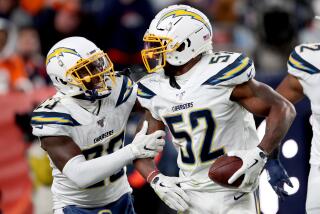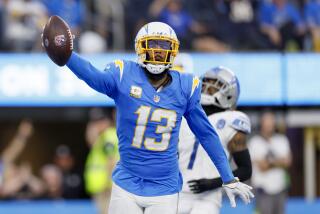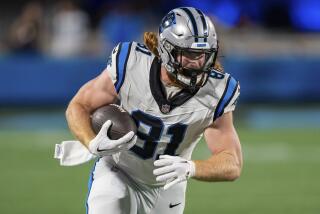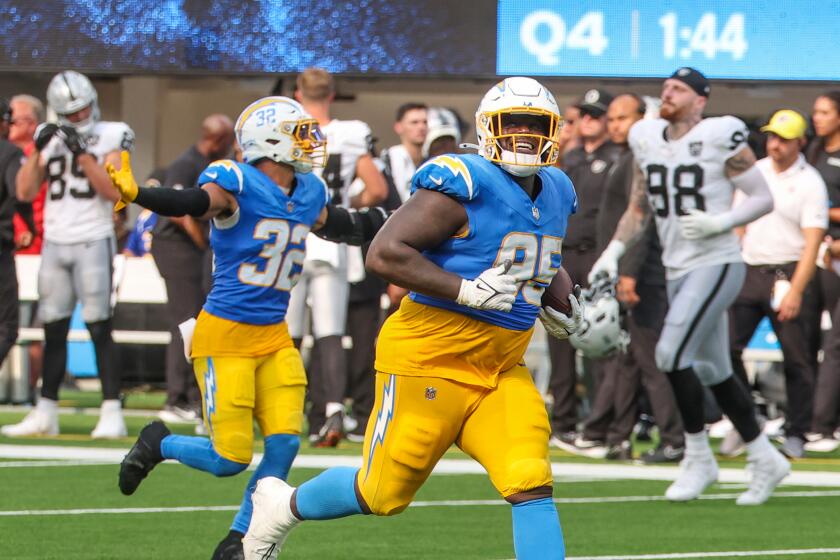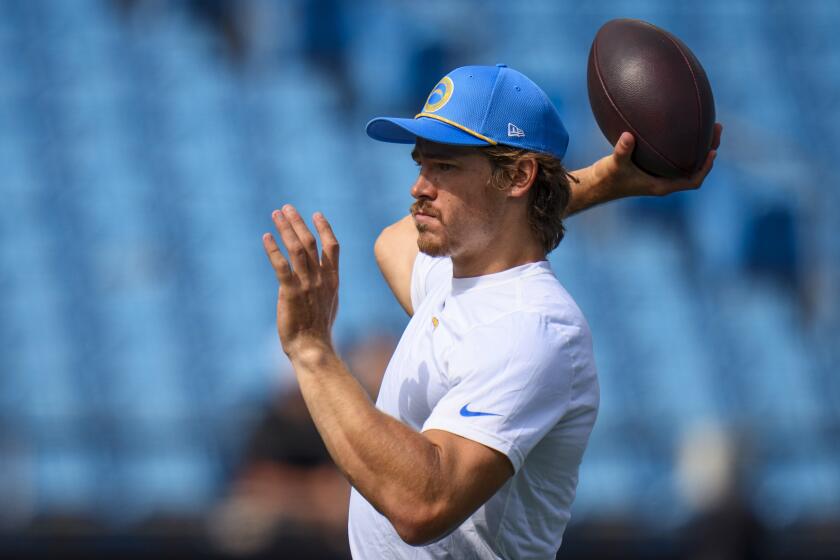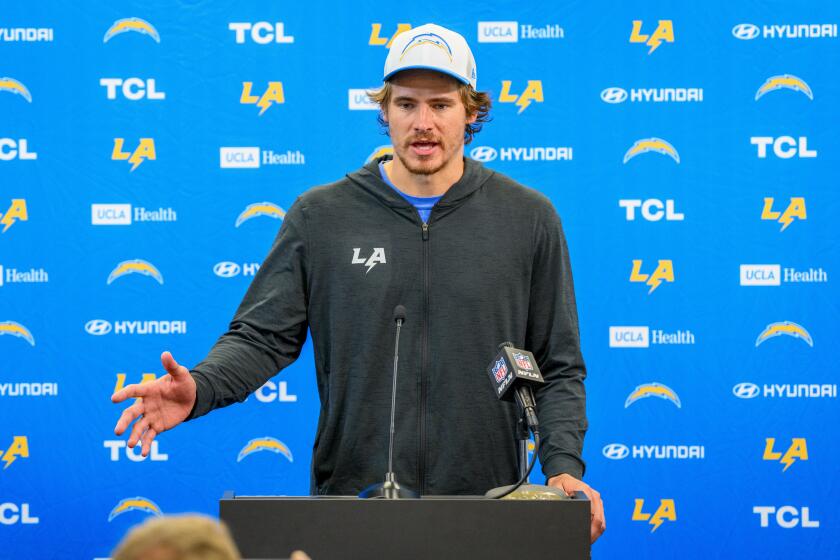Chargers’ Russell Okung on his break with the Players Coalition: ‘This goes beyond dollars and cents’
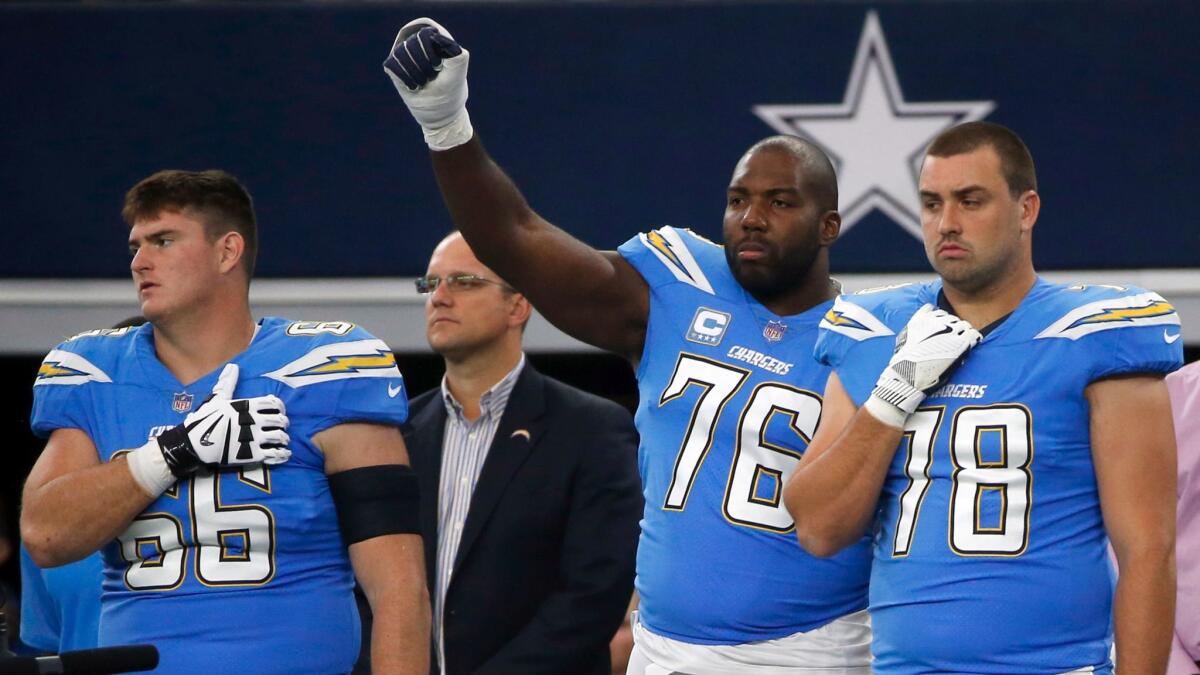
Chargers tackle Russell Okung, who has emerged as one of the leaders among NFL players pushing for social change, spoke Friday about why he’s left the Players Coalition, the group credited with receiving financial backing from the NFL’s owners to address issues of racial injustice.
Earlier this week the group, led by Philadelphia’s Malcolm Jenkins and retired player Anquan Boldin, agreed to a plan that would inject $89 million over seven years to multiple charities, including the United Negro College Fund, according to reports.
Soon after the deal was reported, San Francisco’s Eric Reid, Miami’s Michael Thomas and Okung posted messages on Twitter noting they were no longer associated with the coalition.
“I think, in order to understand what we’d do differently, you have to understand the full political and economic power of the league. When they engage us in ways we can kind of bring about change, that was my thinking — that we should be able to operate on full capacity on multiple levels,” Okung said Friday. “This goes beyond dollars and cents. It goes beyond just allocating funds from other initiatives that are just as important. It’s going to take a real commitment of us, leveraging the platform of the players and empowering us to really talk about these issues, police engagement and brutality.
“That’s just something, I feel, that’s been made into a farce.”
Okung, who has been raising a fist during the national anthem, said he’ll continue demonstrating Sunday.
“We are in a sport where we have people of color,” Okung said. “Men of color have prominent roles in this league as players. Now is a pivotal time to be able to leverage that correctly.”
The NFL has been immersed in controversy since former San Francisco 49ers quarterback Colin Kaepernick began protesting last season by kneeling during the playing of the national anthem because of police brutality.
Kaepernick’s role with the Players Coalition — or lack thereof — has been cited as part of the reason the group has fractured.
“I think you’ve got to keep in mind who started this whole thing, who sort of put himself on the line. There’s definitely some respect there. I believe this is the same league who has effectively blackballed him,” Okung said. “So when you’re dealing with a certain group of people, this entity as a league — you try to keep in mind, is this a reparation, or just $89 million?
“Reparation extends beyond just dollars and cents, in real change in policy and lobbying. I think that should be more at the forefront of what we’re trying to accomplish here.”
Twitter: @DanWoikeSports
More to Read
Go beyond the scoreboard
Get the latest on L.A.'s teams in the daily Sports Report newsletter.
You may occasionally receive promotional content from the Los Angeles Times.
